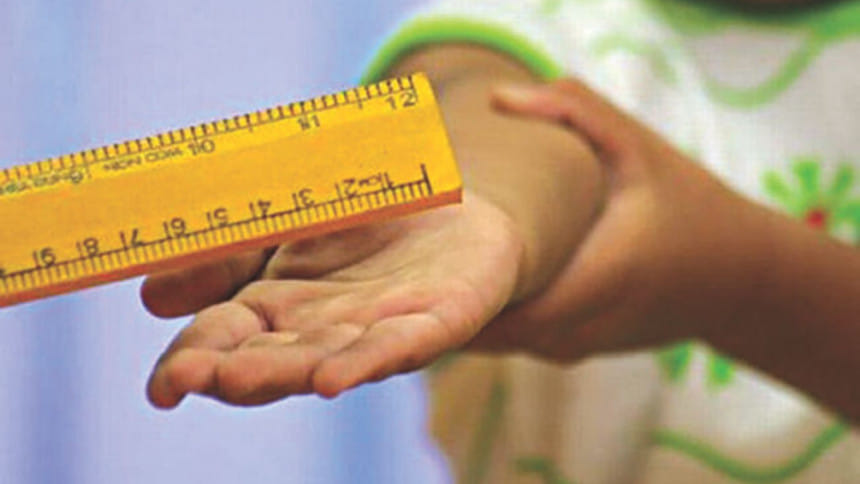Put us, students, first!

Blessed are the people who have gone through their entire lives without having one single teacher they were disgruntled with.
For some of us, that's every teacher who dared to grade our flawless but brilliantly flawed paper anything less than an 'A'. For the rest, it's either that Bangla teacher who only gave 'A's to the kids who attended her coaching – the others scoring miserably – or the extremely old fashioned physics teacher, the one in his late 50s, who still holds the belief that it's possible to slap an 'A' out of a student. Obviously, this motivates the student to learn physics and calculate the velocity at which more such slaps sweep through the air, in order to dodge them in the future.
Unfairly graded, sometimes abused, we stay silent and powerless at places where we are supposed to learn. In a country with over 23.9 million students and roughly 0.6 million teachers to teach them (around 40 students per teacher), cases where a teacher showcases crude humour, applies inappropriate teaching techniques, frequently resorts to favouritism, sexism, verbal abuse and sometimes embarrasses students for the heck of it are unfortunately not just unheard of, but the norm many come to live by. Only when it goes too far, i.e. cases of sexual harassment, do we feel the need to act. Maybe the norm we are living by already has gone far enough.

It's wrong to paint all teachers with a broad brush, yet the things mentioned above are not simple exceptions but rather a tolerance we have been taught to internalise. Even looking past the "exceptions", sometimes a teacher may just be plain ineffective. For some absurd reason, a common misconception in schools and universities is that superior knowledge=superior teaching ability. While knowledge is indubitably essential to teaching, the ability to convey that knowledge to your students in order to induce learning – the very purpose of teaching – is blatantly underrated in our country.
It's hard to pinpoint the "why" in the current scenario facing us. I'm about 99 percent sure that the teachers we hate didn't start off thinking "oh yes, I'm a teacher now *hehe* time to make their lives hell because I can". No, they're as much a product of the system as we are. One core issue might be the fact that teachers are severely underpaid here, despite the crucial roles they play in shaping the minds of the future. Without the proper focus on ensuring a more respectable, lucrative profession, what incentive do we leave for competent people to join teaching, or people within the profession to perform well? A ratio of 40 students to 1 teacher explains what the real tragedy is.

This also explains why schools/universities often look for the bare minimum requirements for their teachers and protect said teachers when we, students, try to complain that they are just not good enough. Besides not maintaining quality, institutions often don't focus on administering proper teacher training modules.
As if your school/university not taking your complaints seriously was not bad enough, there's always that one teacher who won't take you going against him/her lightly. One wrong move and you're looking at a bad grade; at the university level, one bad grade could make the difference between survival and expulsion.
Insufficient evaluation of teachers, a system which protects teachers' interests over the students' and prioritises knowledge to the delivery of knowledge – that's the flawed system we have. Sure, some succeed, despite all odds. But just how many fail undeservedly, unable to reach their maximum potential because someone unjustly decided not to let them? Major educational reform is essential here, if we
are to dream of a better tomorrow, a fairer tomorrow.
Put students first, and everything else will fall into place.


 For all latest news, follow The Daily Star's Google News channel.
For all latest news, follow The Daily Star's Google News channel. 



Comments